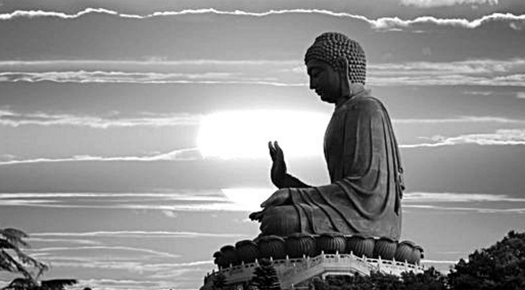
Hindu radicals in India have raised questions over the legacy of Ashoka the Great. A publication backed by Rashtriya Swayamsevak Sangh recently claimed that Ashoka’s renunciation of violence, conversion to Buddhism and subsequent promotion of ahimsa is what opened India’s borders to foreign conquerors. The magazine went on to accuse Buddhists of having played a seditious role in helping Greek invaders destroy the subcontinent’s ‘Vedic religion’.
The article was published in the May issue of Bappa Raval, which serves as the mouthpiece of Rajasthan Vanvasi Kalyan Parishad (RVKP), an affiliate of Sangh Parivar as part of RSS’ tribal wing Vanvasi Kalyan Ashram that is headquartered in the Indian state of Chhattisgarh.
Even though the article starts off by recognizing Ashoka’s great achievements as a world leader, it quickly moves past that point to explain how the Mauryan ruler’s conversion to Buddhism caused him to overtly promote nonviolence; thereby compromising his own image before foreign invaders and opening up his empire’s borders to ruthless foreign invaders.
“It was India’s misfortune that the same Emperor Ashoka, who became the reason for India’s decline…we worshiped him as great…It would have been better if, like Bhagwan Buddha, Emperor Ashoka too, would give up his kingdom, become a monk and promote Buddhism…(then) India would not have had to face such a mountain of hardship,” noted the article. “Instead, he (Ashoka) turned the entire empire into a giant monastery for promoting Buddhism. It was because of the Buddhist leaders of Magadha that Greek invaders returned to conquer India… Buddhist monks propagated seditious, senseless, anti-India ideas among their disciples that Buddhism did not believe in caste or nation. Whenever foreign invaders sympathetic to Buddhism attacked India, these Buddhists colluded with them, instead of fighting them bravely.”
This article is part of a series of essays titled ‘Bharat: Kal, Aaj Aur Kal (India: Yesterday, Today and Tomorrow), which attempts to explore India’s historical past and continues to be featured regularly in Bappa Raval.
Speaking to Atheist Republic, Radhika Ladha—editor of Bappa Raval and office bearer for RVKP—clarified that while writing this article, she did not intend to accuse Buddhists or depict Emperor Ashoka in negative light.
“All I wanted to say was that although our ancestors were great luminaries, our country has had to face so much due to certain small mistakes on their part. I never called Buddhists seditious…it was only meant to convey their poor understanding during that period,” Ladha said. “My perspective was that we should learn from our mistakes and lead the country on to a path of prosperity and development.”
However, historians have begged to differ with Ladha’s poor understanding of Emperor Ashoka and Buddhism.
Vibha Upadhyaya, head of the department of History and Indian Culture at Rajasthan University, said, “Buddhism recognizes the importance of a strong king, as it frequently used the term 'chakravarthi'.”
She stressed that even after the historical Kalinga War led to Ashoka forsaking all future expeditions, he continued to maintain a strong army. Apparently, it was not Buddhism but weak and inexperienced successors that caused the Mauryan Empire to eventually collapse.
RVKP was founded in 1978 in response to Christian missionaries organizing extensive relief work across India during the 1960s. Today, the Sangh Parivar-affiliate works with six Scheduled Tribes across 3,000 villages in Chhattisgarh, Madhya Pradesh and Rajasthan; operating numerous hospitals, residential schools and sports training centers in these areas.
Photo Credits: Secret Truth of Life
